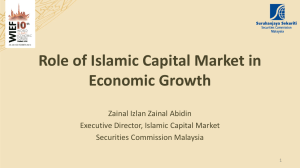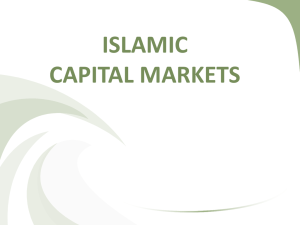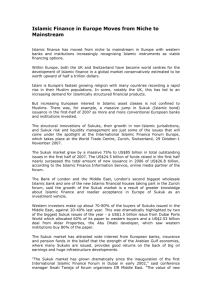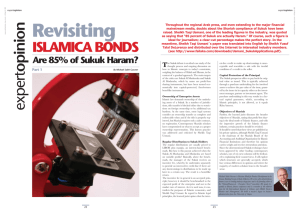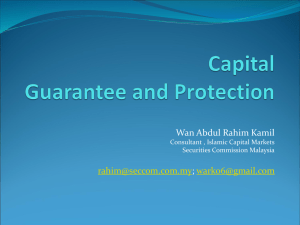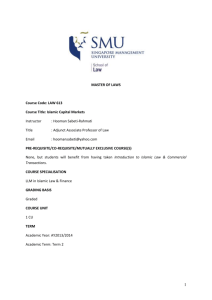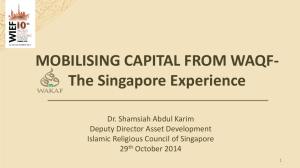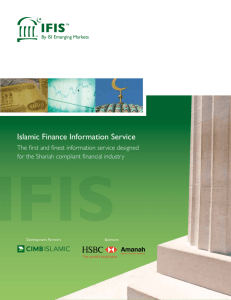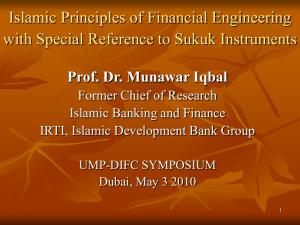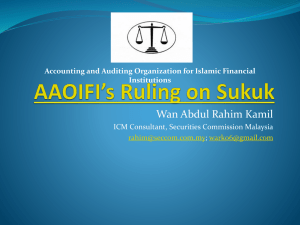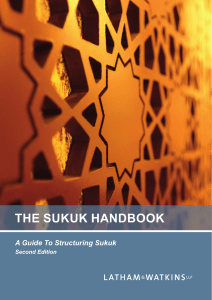Shari’ah Challenges in Malaysia Sukuk Market نع ةيعرشلا تائيهلا ىضر ةيعرشلا تاسرامملا ل
advertisement
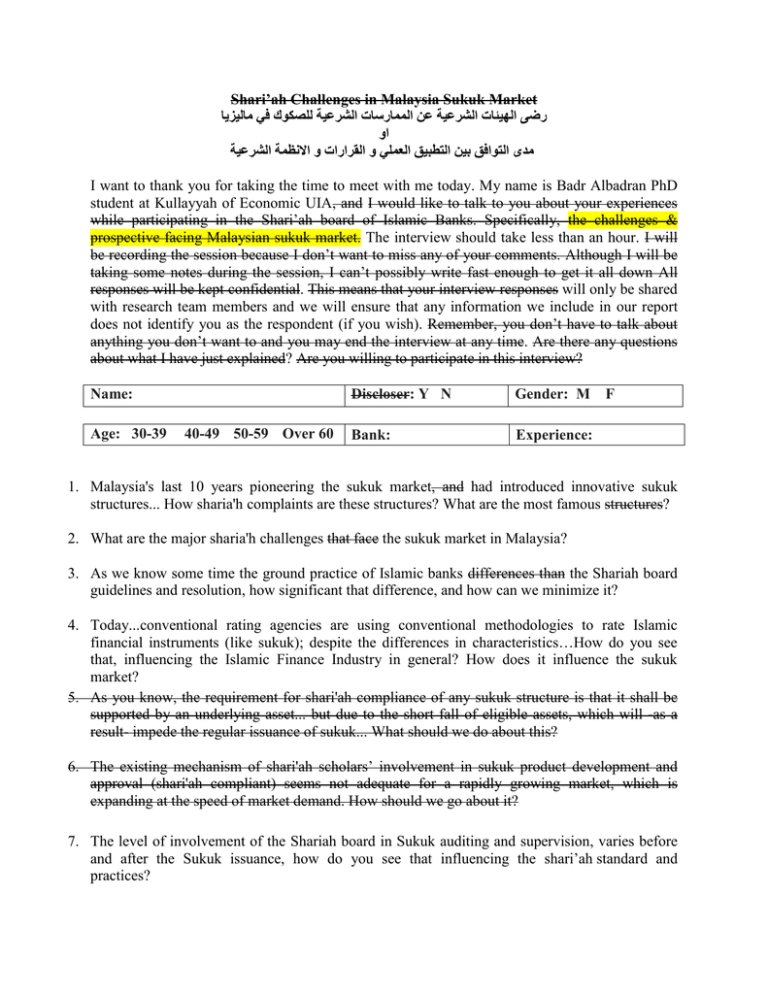
Shari’ah Challenges in Malaysia Sukuk Market رضى الهيئات الشرعية عن الممارسات الشرعية للصكوك في ماليزيا او مدى التوافق بين التطبيق العملي و القرارات و االنظمة الشرعية I want to thank you for taking the time to meet with me today. My name is Badr Albadran PhD student at Kullayyah of Economic UIA, and I would like to talk to you about your experiences while participating in the Shari’ah board of Islamic Banks. Specifically, the challenges & prospective facing Malaysian sukuk market. The interview should take less than an hour. I will be recording the session because I don’t want to miss any of your comments. Although I will be taking some notes during the session, I can’t possibly write fast enough to get it all down All responses will be kept confidential. This means that your interview responses will only be shared with research team members and we will ensure that any information we include in our report does not identify you as the respondent (if you wish). Remember, you don’t have to talk about anything you don’t want to and you may end the interview at any time. Are there any questions about what I have just explained? Are you willing to participate in this interview? Name: Age: 30-39 40-49 50-59 Over 60 Discloser: Y N Gender: M Bank: Experience: F 1. Malaysia's last 10 years pioneering the sukuk market, and had introduced innovative sukuk structures... How sharia'h complaints are these structures? What are the most famous structures? 2. What are the major sharia'h challenges that face the sukuk market in Malaysia? 3. As we know some time the ground practice of Islamic banks differences than the Shariah board guidelines and resolution, how significant that difference, and how can we minimize it? 4. Today...conventional rating agencies are using conventional methodologies to rate Islamic financial instruments (like sukuk); despite the differences in characteristics…How do you see that, influencing the Islamic Finance Industry in general? How does it influence the sukuk market? 5. As you know, the requirement for shari'ah compliance of any sukuk structure is that it shall be supported by an underlying asset... but due to the short fall of eligible assets, which will -as a result- impede the regular issuance of sukuk... What should we do about this? 6. The existing mechanism of shari'ah scholars’ involvement in sukuk product development and approval (shari'ah compliant) seems not adequate for a rapidly growing market, which is expanding at the speed of market demand. How should we go about it? 7. The level of involvement of the Shariah board in Sukuk auditing and supervision, varies before and after the Sukuk issuance, how do you see that influencing the shari’ah standard and practices? 8. In the absence of a global standard in the sukuk structures, and the limited application of AAOIFI standards brings more challenges to the volume of sukuk issued and its future regulations...what would this influence the Malaysian Sukuk market? 9. In the absence of a global standard in the sukuk structures, and the different Shariah view between Malaysia and the world especially in the trading of debt bass sukuk, how does it affect the future of Malaysian sukuk market, and how do you see that practice complained with Maqasid Al-Shariah? 10. Despite the wide acceptance and support for the asset-backed Sukuk structures, the asset-based Sukuk still dominating the market, in addition to other structures that are neither asset backed nor asset based; how do you see this affecting the Islamic capital market especially in Malaysia? 11. In line with the profit-loss sharing concept, and the excess return that the sukuk manager may get (over the conventional bond return), without providing them with the real project return, how can we justify that unfairness deal? 12. What are the Shari’ah parameters that have to be adhered to and complied with to enable them to be used in Islamic banking and finance? 13. Regarding, BNM Guidelines BNM/RH/GL/012-1: “The Islamic financial institution must provide necessary assistance to the Shariah Committee. The Shariah Committee must be given access to relevant records, transactions, manuals or other relevant information, as required by them to perform their duties. For this purpose, the Shariah Committee members are granted exemptions from the secrecy provisions under the respective legislations.” What documents you need to review in new Sukuk before and after the issuance process? And do you get the full access necessary? 14. Do you audit the bank transaction regularly? How often and how do you audit sukuk product? 15. During the auditing process if you found any profit earned that is not Shariah complaint what you do about it? In addition, do you have the authority to set aside (put aside) the non-shariah complaint profit earned if any? 16. Securities Commission defines Securities [Sukuk] as” A document or certificate which represents the value of an asset”. How sufficient and accurate that definition in Shariah prospective? ((While AAOIFI defined it as “Investment Sukuk are certificates of equal value representing undivided shares in ownership of tangible assets, usufruct and services or (in the ownership of) the assets of particular projects”)) 17. Is there anything more you would like to add? • Would you give me an example? • Can you elaborate on that idea? • Would you explain that further? • I’m not sure I understand what you’re saying. • Is there anything else? Re-explain the purpose of the interview, why the stakeholder has been chosen, expected duration of the interview, whether and how the information will be kept confidential, and the use of a note taker and/or tape recorder. I’ll be analyzing the information you and others gave me and submitting a draft report to the organization in one month. I’ll be happy to send you a copy to review at that time, if you are interested. Thank you for your time.
